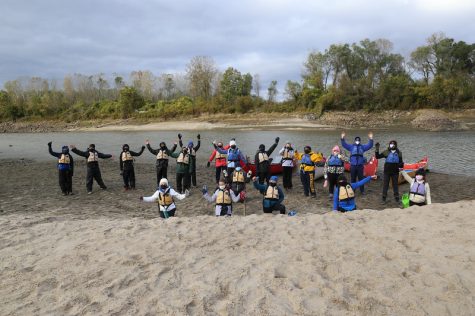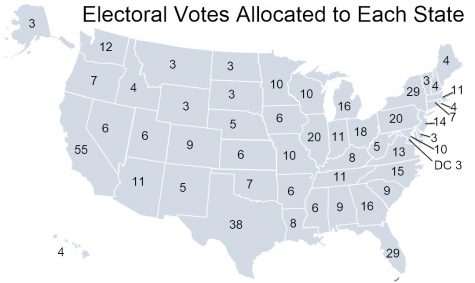Schedule Choices
June 1, 2019
At the end of the spring semester, every student except for the seniors receives their course selection cards. Seventh and eighth graders do not have many choices to make — they select their language course and performing arts class, but that’s about it.
Once students reach high school, they have a huge variety of new electives to pick from. Students can take completely new classes, such as theatre production, playwriting, printmaking, photography, architectural drawing, and gourmet cooking. Students may also select from electives that will develop skills learned in middle school courses such as debate, public speaking, sewing, and painting and drawing.
At the same time, the basic core courses — math, English, social studies, and science — are still required. It is not until the end of junior year that students can pick from a whole new selection of core classes.
Completely new science, social studies, and English seminar options are presented to incoming seniors. They can take neuroscience, carbon chemistry, creative writing workshops, global modern feminism, urban issues and design, bioethics, and more.
While students are fortunate to be able to take some of these courses, the number of classes we can actually take is limited. These advanced new courses are not offered until our senior year, which only allows us to take a small portion of them.
Burroughs has always upheld strict rules about advanced placement (AP) and honors courses, and students can take no more than a total of three honors and APs during their junior and senior years. APs and honors are not even offered to freshmen and sophomores. Math and science courses are deemed “accelerated” for underclassmen.
However, some seniors argue that the AP science courses offered senior year are not that different from the accelerated classes. Nathan Peng (’19), who currently takes AP Chemistry said, “There are some additional topics, like electrochemistry, but there is a lot of overlap.”
Carrie will insert a teacher POV here, to balance the article. Save a little space for that.
Ann Zhang (’20) said, “I wish we could have taken more non-traditional science, English, and history classes earlier because, with scheduling as it is, we can only take them senior year, meaning one of each at most.” However, she added, “But that’s also the only way I can imagine course selection working because we first have to establish a core understanding in all of these subjects. We have to take biology before we take bioethics, for example.”
While I agree that students should follow the core math and science courses throughout high school, they should still be allowed to choose which classes to take, whether that be regular, accelerated, or AP, no matter what grade they are in. By doing so, students can take more classes, such as neuroscience and carbon chemistry as seniors instead of having to choose between an AP science course or non-AP.
However, for English and history courses, Burroughs should allow students to choose from a wider variety of courses. While I understand that U.S. History is required by the state for all juniors to take and pass, students should be allowed to take the class that interests them the most in their other high school years.
Bioethics, urban issues and design, literature and history, and global modern feminism are all classes that I wish I could take before I graduate, but that is not possible because those courses are only offered to seniors.
Honors English seminars are also only offered to seniors. These seminars give students the opportunity to explore their interests in workshops such as creative writing in smaller groups. This additional seminar only meets one period per week which would not be a drastic addition to our schedules, even as 9th and 10th graders.
Anju Sadasivam (’19) said, “There’s always been options for people who are good at math and science but nothing for those of us who love history and English.”




